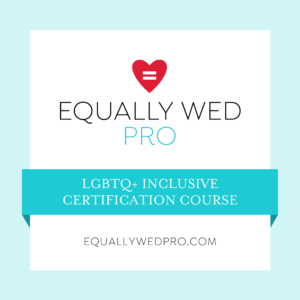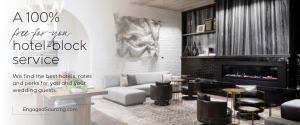As an increasing number of young people identify outside the gender binary, it is more important than ever that those in the wedding industry actively work to become more trans-inclusive.
But couples shouldn’t have to wait for vendors to catch up. These transgender and nonbinary wedding professionals are already doing safe, inclusive and beautiful work for transgender clients, as well as for the entire LGBTQ+ community.
Below, they offer advice for couples on how to ensure they have the wedding of their dreams, and also advice for their fellow wedding vendors on how to ensure they are respecting their clients’ identities.
Schuron Womack, Makeup Artist
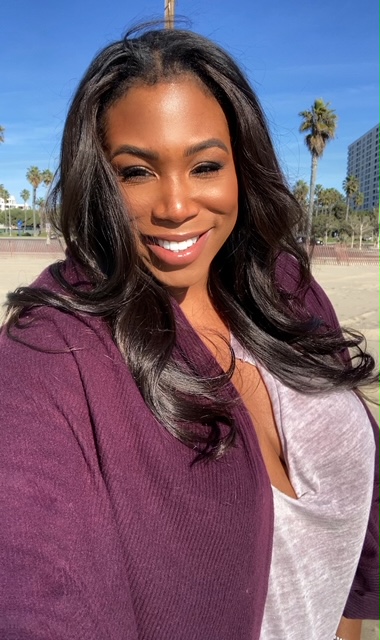
Pronouns: she/her
Business: The Face By Schuron
Business Location: Los Angeles, CA and Salt Lake City, Utah
“I love all joyous occasions,” says Schuron Womack, “and weddings are such a beautiful celebration of a union of two people who come together and actually decide to make the decision to be in a committed relationship. I don’t think there’s anything more beautiful than that.”
She advises trans and other LGBTQ+ couples to be honest with themselves about how they want their wedding to look.
“Know that there is nothing more important than the two of you making this decision to actually be together…and remember being trans has nothing to do with your wedding. We’re all human.”
She hopes vendors realize the same.
“Remember that we are human and this celebration is about love, not about trans-ness. It’s about celebrating two people who love each other.”
She also says vendors working with trans clients need to do their research.
“Actually find out what it means to be trans. That way, you go into the special occasion with a full heart and remember, it’s about making the couple happy.”
As a vendor, Womack hopes people see her for more than her trans identity.
“The only advice I have in being a beautiful Black trans women in the wedding industry is to see me to see my work and understand that I am a businesswoman, not just a trans woman, a businesswoman, and this is my livelihood.”
Jamie Carle, Photographer
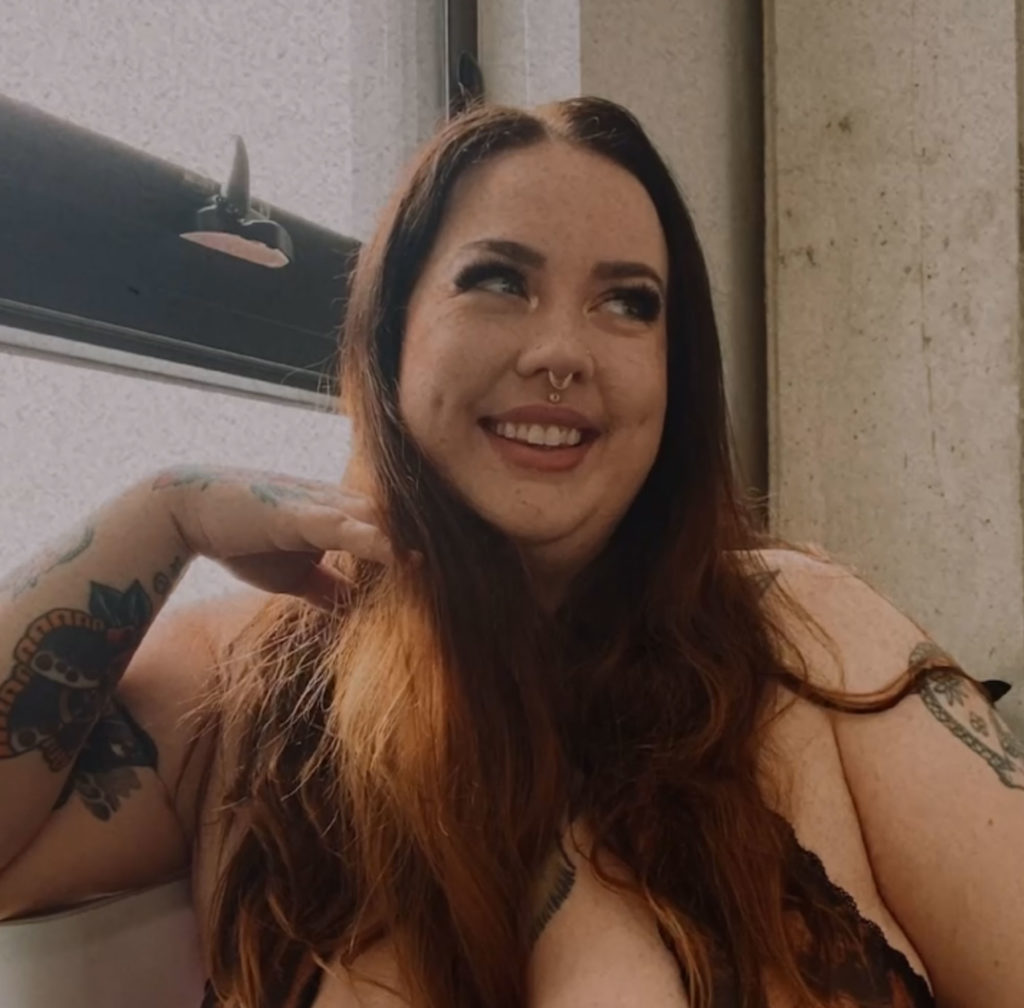
Pronouns: they/them
Business: Jamie Carle (site is currently offline while they are not taking new bookings)
Business Location: Portland, OR
Jamie Carle decided to work in the wedding industry so they could change it from within. “For the past five years, I’ve been working with queer, feminist, radical and eco-conscious couples who—to me—make the wedding industry feel like it can move in a new direction,” they say.
While there are still many aspects of the wedding industry that Carle says are in dire need of change, they feel more hopeful that change is indeed coming.
“Planning a wedding can be full of erasure, heteronormativity, gender roles, fatphobia, racism, ableism and capitalism,” they say. “I feel like there are more vendors now than ever that are working to dismantle that.”
Carle is proud to help couples design the weddings that work best for them.
“We grow up attending weddings and assume that ours will need to be the same. Even if I just plant a seed that a wedding can be totally different or if I’m the first vendor they have booked who truly affirms and represents them, I feel full.”
They also encourage vendors to view their websites through the lens of a queer couple.
“You might notice you don’t have very many queer photos where they can see themselves and feel safe, you use gendered language that wouldn’t apply, or you aren’t able to recommend other vendors who are diverse or safe for those couples. We can always do better.”
Eli Holmes, Photographer
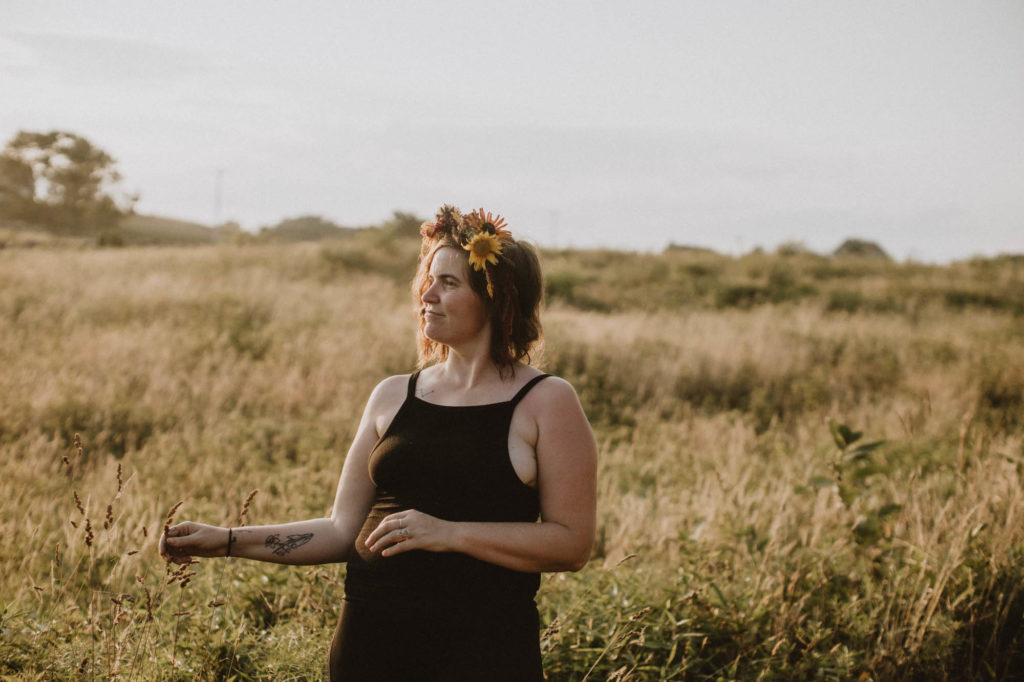
Pronouns: they/them
Business: Seas Mtns Co, The Studio
Business Location: Southern Vermont; Block Island, RI
“We live in a society where only a very few body types are viewed as valid and beautiful,” says Eli Holmes. “Getting to show all people of all types that they are valid and beautiful is a pretty amazing job.”
Holmes’s biggest piece of advice for couples is to be honest and forward.
“Don’t feel bad having high expectations—you deserve the very best. It’s always YOUR wedding day, and no one else’s, so honestly if it doesn’t bring YOU joy, it can kick rocks.”
As for vendors, Holmes says to stop trying to force couples into gender roles, and to be kind, open and willing to ask questions.
“A real, kind curiosity makes a huge impact in the experience for our couples.”
Holmes added that trans visibility is something that should be prioritized every day.
“Invite trans folx into leadership, into your circles,” they say.
Sunni Campbell
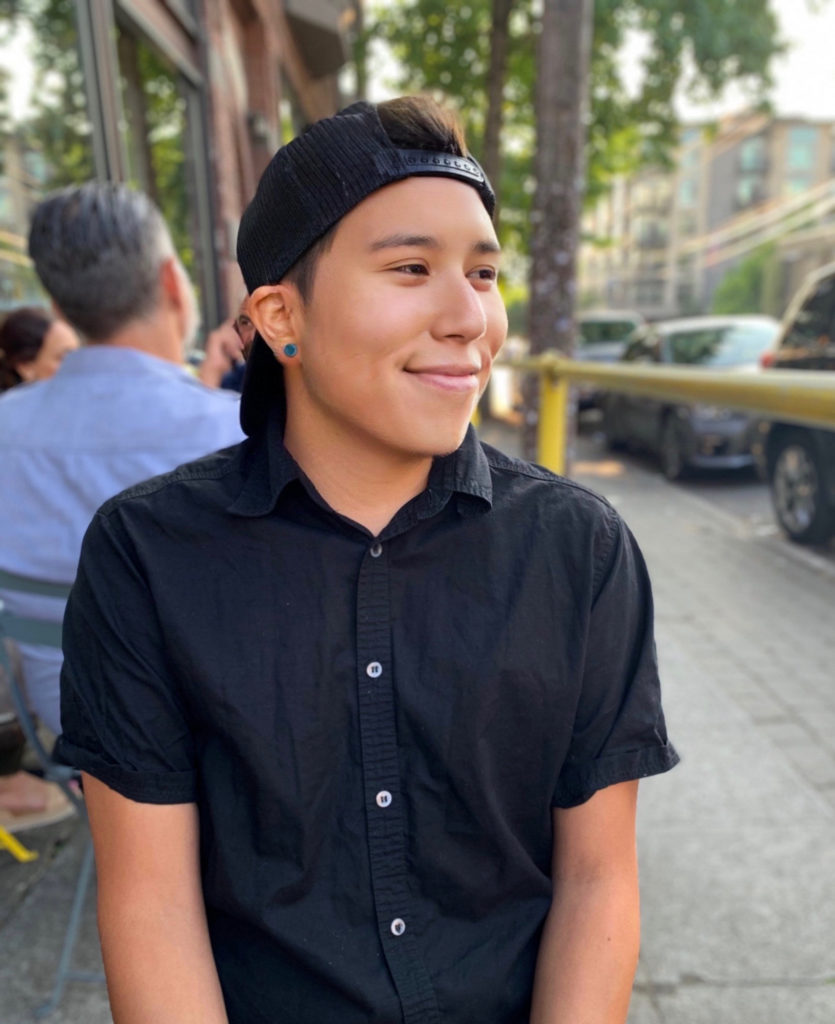
Pronouns: they/them
Business: Modern Aisles
Business Location: Seattle, WA
Sunni Campbell and their partner launched Modern Aisles to bring joy and support to the LGBTQ+, and especially the trans, community.
“All we want is for the industry to respect that love exists beyond the binary,” they say.
Campbell says the wedding industry is in dire need of evolving, and they are glad to be a part of that change.
“As an Indigenous, queer and trans wedding planner, it feels so important for me to be able to bring my perspective to the wedding industry. […] Some of our most precious moments as a team involve hearing a couple take a sigh of relief when they realize that we deeply understand something about them that most vendors never could. We help queer and trans couples feel seen, align all aspects of their wedding through the values most important to them, and help bring more joy to couples who historically have been marginalized by our industry.”
Ez Powers, Photographer
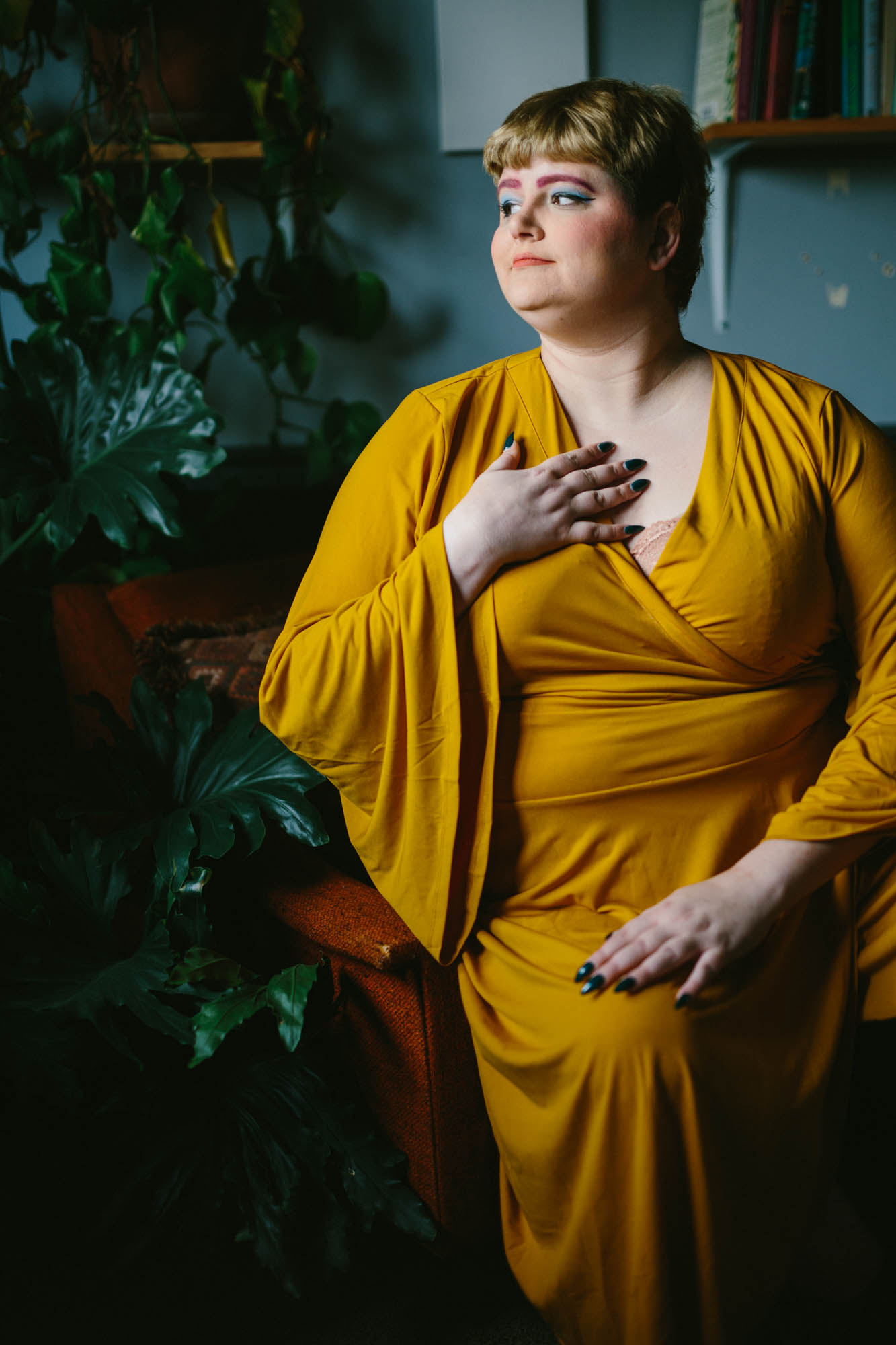
Pronouns: ze/zem/zyrs
Business: Ez Powers Photography
Business Location: Chicago, Illinois
“As an agender biromantic asexual wedding photographer, my documentation of love between others like me has an inherently political meaning to the practice,” says EZ Powers. “We are giving visibility to love that has always been silenced, punished and violently denied to us.”
Powers began working as a wedding photographer eleven years ago, before marriage equality was a legally recognized and while still in the closet as a trans person.
“I didn’t start realizing my truth until I started working with more 2SLGBTQIA people,” ze says. “Ultimately, I feel like that was the true beginning to my career in this industry and a big reason as to why I do this.”
Powers says transphobia remains prevalent in both the wedding vendor community and also from clients ze works with.
“It is a large reason as to why I’m working with 90 percent 2SLGBTQIA people now. It’s just safer for me. My biggest client group comes directly from the Chicago queer community now, and that is a big part of how I’ve overcome these challenges.”
While Powers believes trans visibility in this industry is key, ze says it is also complex from a safety perspective and must be handled carefully and respectfully.
“Most of my trans clients have an NDA agreement where I can only show the gallery to trans clients who request wedding samples. It’s important we consider the safety of our trans clients before our own profit, as well. My NDA is no charge. As this is not a normal NDA agreement you’d have if they were a celebrity or public figure. I cannot put a price on safety and turn away business with fellow trans people over such things.”
Carly Miller, Officiant
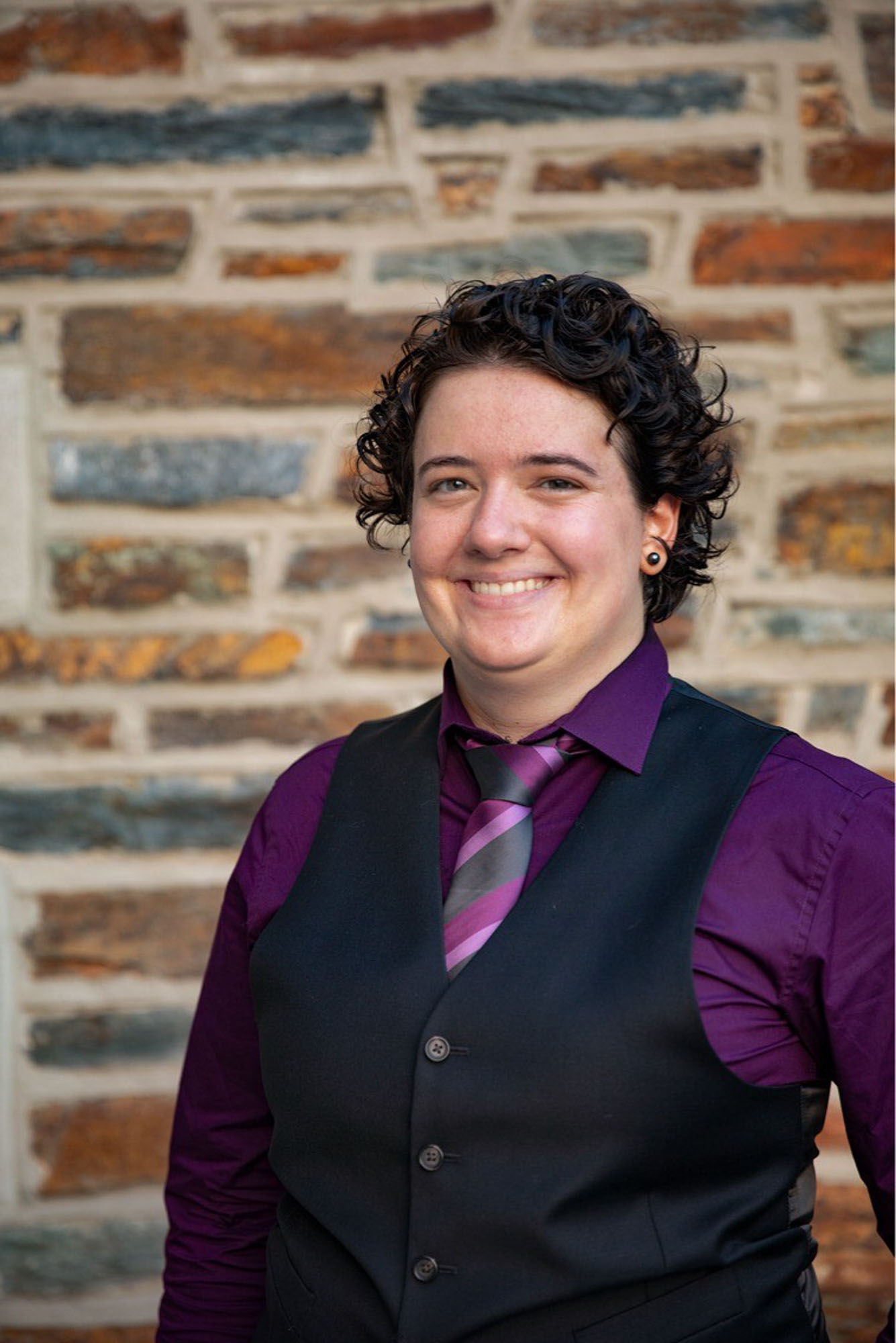
Pronouns: they/them/theirs
Business: Magical Weddings by Carly
Business Location: Durham, NC
“Trans marriers and vendors are only just starting to get the recognition we deserve,” says Carly Miller. “Increasing percentages of youth are not identifying inside the gender binary, which makes it even more important to be educated and aware of trans identities because we’ll only be more common as time goes on and we deserve complete acceptance and understanding, especially on our wedding days!”
Miller got into officiating because they simply love to celebrate love.
“I love that I’m able to work with my wonderful couples to help create beautiful, quirky, unique, queer, special ceremonies that perfectly fit who they are and what they love. I feel so lucky to be able to stand by them as they look into their partner’s eyes and declare their love for one another. ”
Couples, they say, should make sure the vendors they select are inclusive.
“Ideally, a vendor website or social media should show diverse couples, though newer vendors might not have had a chance to work with their ideal clients yet. Look for statements of inclusivity and acceptance that are clear and show knowledge of trans inclusion. Make sure vendors will respect your pronouns and identity. This should hopefully be clear on their website, but if not you can always ask!”
Vendors, Miller added, must continue to educate themselves.
“Follow LGBTQ+ folks on social media, read their writing, take their classes. Also, I always ask my clients their pronouns in my intake form. Many of my peers who say they are LGBTQ+ inclusive really mean they’re fine with doing gay and lesbian weddings and have no knowledge of trans identities or how to work with trans people. Every nonbinary person I’ve officiated a wedding for has had one or more other vendors misgender them. […] There is no way to tell someone’s gender identity just by looking at them, which is why it’s so important to ask, ideally at first contact instead of on the wedding day itself!”
Jen Avery, Photographer
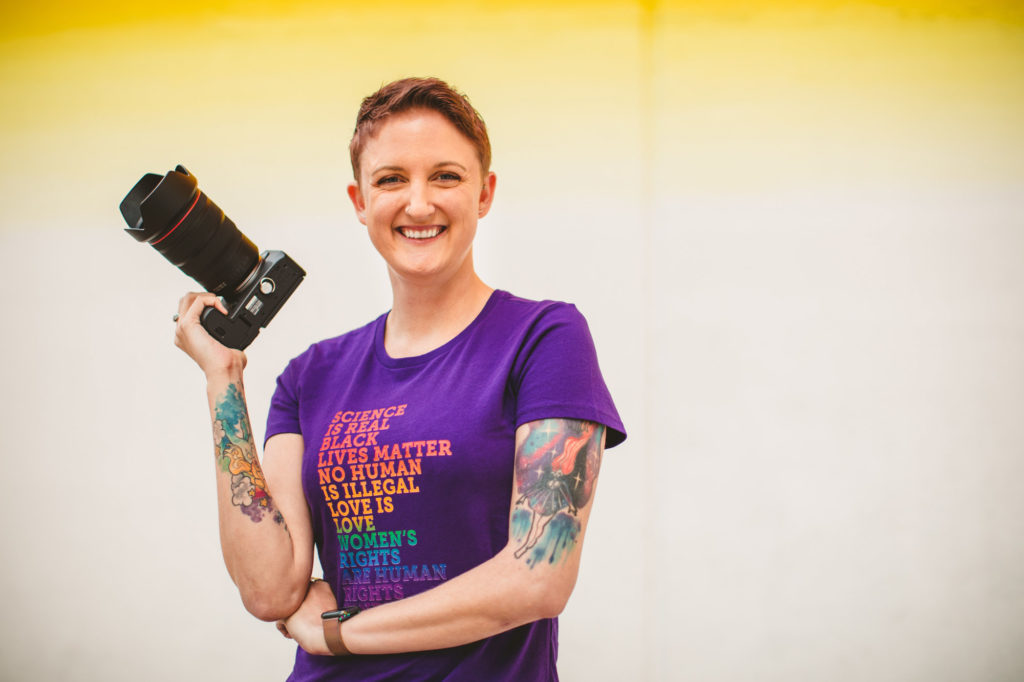
Pronouns: she/he/they
Business: Creatrix Photography
Business Location: Austin, Texas
Jen Avery has worked as a wedding photographer for 10 years and is known in Austin as an advocate for vendor education concerning inclusivity.
“We only work with vendors that are enthusiastically LGBTQIA+ supportive” they say. “I believe couples should do the same, holding vendors to a higher amount of accountability. If you go to a website and you aren’t sure if they’re going to turn you down or not—don’t contact them. This is probably going to piss off some vendors but let’s be honest: so many want the money, yet are afraid to risk more money by loudly supporting their fellow humans. It matters more than ever that our money goes where it will count the most. At your wedding, set out to spend your money in the most ethical way possible and use that intention to set your marriage on the right path from the start.”
Trans folx, Avery says, do not have to tolerate ignorance.
“As a trans wedding photographer myself, the binary representation is exhausting. Personally, I abhor the term ‘same-sex’ when it comes to anything wedding-related. I teach vendors that it’s transphobic and that unless they’re checking genitals, they can’t possibly know if a couple is same-sex. If a vendor is throwing around the term same-sex like they’re totally hip and in the know, move on. They’re using terms without any research and thus, most likely catering to monetary gain rather than actually empathizing with our community. Don’t waste labor and energy on educating them—Google exists for a reason.”
Avery says vendors who want to be inclusive need to address all gendered rhetoric in their branding.
“Check your contract, questionnaires, websites, canned emails, etc. for anything that mentions bride or groom. Remove all pronouns unless you’ve clarified pronouns. Partner 1 and Partner 2 are sufficient across the board. ‘Bride’ and ‘groom’ can become dangerous words to use if you want to work with the LGBTQIA+ community.”
The most important thing vendors can do, they add, is to never make assumptions.
“Just because someone has breasts doesn’t automatically make them a bride. Just because someone lacks breasts doesn’t make them a groom. Binary language is not only insulting, it can be extremely harmful to those that experience dysphoria, i.e. this is my body but not really my body. By removing all binary and gendered language from your brand, you show potential clients that you welcome the confusing aspect of the human condition and focus solely on the experience, not the construct.”
Shannon Collins, Photographer
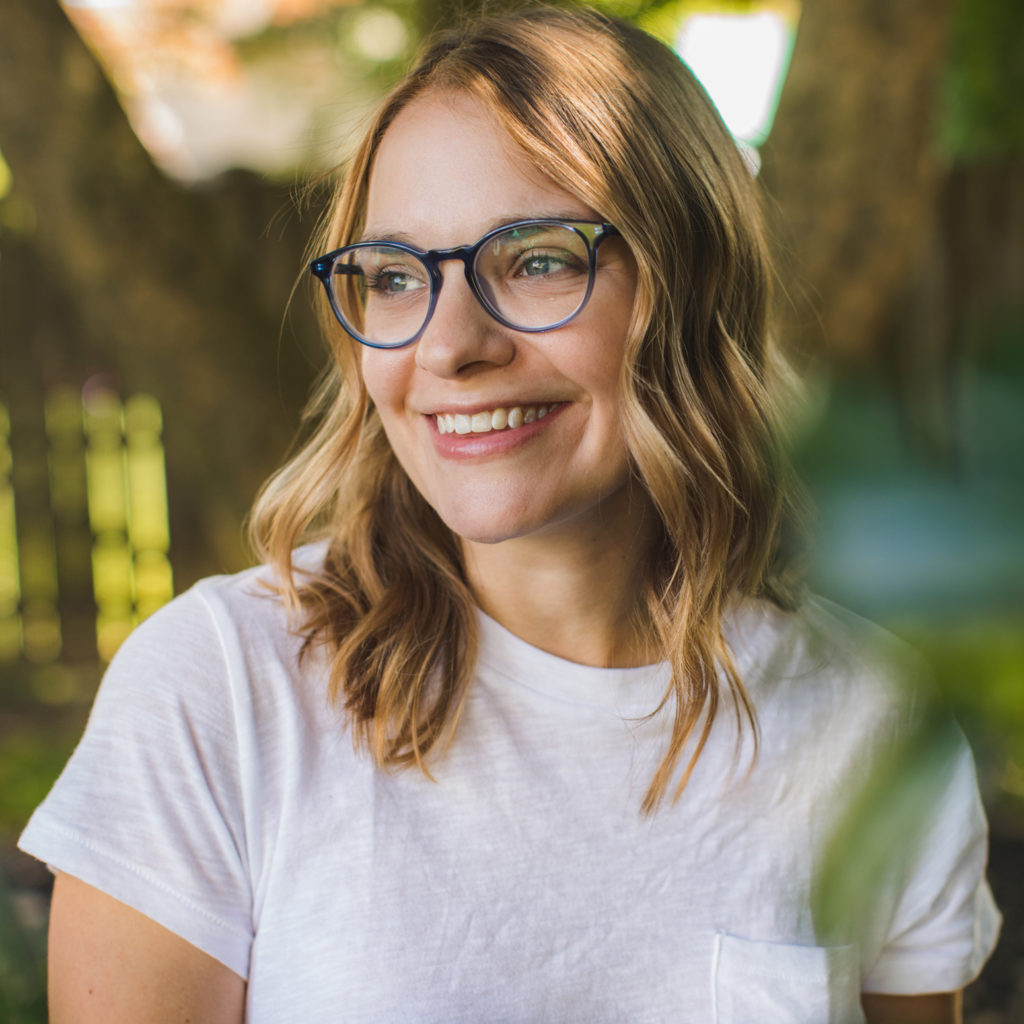
Pronouns: she/they
Business: Shannon Collins Photography
Business Location: Philadelphia, PA
“There’s something so magnetic about capturing weddings,” says Shannon Collins, “Especially when I find clients whose values align with my brand. It becomes more than photographing their wedding day—it’s about connecting with people during the milestones in their life and over everyday things that make us human.” Collins, who has been photographing weddings for 11 years, says one of their favorite parts of the job is working with marginalized communities to amplify their voices and stories.
“I love capturing love stories and normalizing the many ways joy can look. There’s beauty in shared vulnerability—it’s when we finally feel the freedom to fully be ourselves. Being able to connect with other folks in the queer and disabled communities, who I’m lucky to call my clients, has been invaluable. There’s a certain comfort that comes with having a mutual understanding of things like gender identity and sexuality. When we’re meeting from a place of some type of connection within the LGBTQIA2S+ community, it feels like home.”
Halle Roland, Photographer

Pronouns: they/them
Business Name: Halle Roland Photography
Business Location: Tacoma, WA and beyond
Halle Roland works exclusively with queer and trans folks and loves “showing the world the magic” of this community. “I’m most proud of the impact visible queer and gender expansive art has on helping folks see the magic in themselves. We all deserve to see ourselves lovingly reflected in art and media,” Roland says.
They encourage couples to choose a photographer with a body of work in which they see themselves reflected and who makes them feel “safe and seen.”
“Trans visibility everywhere saves lives,” Roland says.
To learn how to be authentically LGBTQ+ inclusive in your business and earn your Certified Inclusive Professional credential, visit equallywedpro.com.




